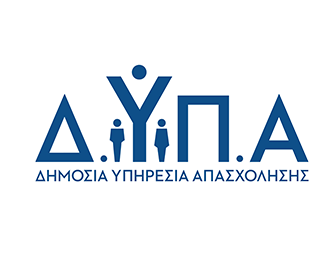
National Skills Council
The National Skills Council has a major coordinating role in matters concerning upskilling, reskilling and continuing vocational training and its goal is to link the labour force with the labour market and to promote the employment.
In this context the National Skills Council is responsible for drawing the National Skills Strategy and monitoring its implementation through recommendations on the design of the relevant policy to the Minister of Labour and Social Security and other responsible bodies.
The Governor of DYPA is president of the National Skills Council and its 15 members are appointed as follows:
- Three members by the Minister of Labour and Social Security
- One member by the Minister of Education, Religious Affairs and Sports
- One member by the Minister of Development
- One member by the Minister of Finance
- One member by the Minister of Digital Governance
- One member by the Minister of the Interior
- One member by the Secretary-General of Coordination, Presidency of the Government
- The General Director of the Labour Institute, General Confederation of Greek Workers (INE GSEE)
- The General Director of the Institute, Greek Tourism Confederation (INSETE)
- The Managing Director of the National Organization for the Certification of Qualifications and Vocational Guidance (EOPPEP)
- The Managing Director of the Hellenic Accreditation System (ESYD) and
- One member by the National Confederation of Disabled People (NCPD).
Members of the Scientific Skills Committee can attend the meetings of the National Skills Council but without the right to vote. Bodies and persons with responsibilities relevant to the matters discussed each time are also invited in these meetings.
To fulfil its mission and to ensure its smooth operation the National Skills Council collaborates with the Central VET Council as well as representatives of: the market, social partners and their respective institutes, chambers of commerce, institutions, international organisations and services, the Greek National Coalition for Digital Skills and Jobs and other bodies of the public and private sector.
Furthermore, the National Skills Council can commission studies and other services that are necessary to successfully fulfil its mission.
Finally, with the aid of the Scientific Skills Committee the Council prepares for the Minister of Labour and Social Security an annual report on its activities and the upcoming year's planning aiming to promote the goals set by the National Skills Strategy.
Click here for the Official Government Gazette issue
Click here for the amendment in the Official Government Gazette issue
Click here for the amendment in the Official Government Gazette issue
The National Skills Strategy was drawn by the Public Employment Service (DYPA) pursuant to article 26 of Law 4921/2022, which defined the Strategy for the Upskilling of the Labour Force and the Connection with the Labour Market (National Skills Strategy).
Aim of the National Skills Strategy is, inter alia, is to create a cohesive framework:
- to diagnose the labour market needs in terms of skills
- to forecast these needs in the near and medium-term future and
- to utilise and adapt the actions of continuing vocational training
in order for the labour force to acquire or upgrade its skills so that it can directly and successfully connect to the labour market.
Specific objectives of the National Skills Strategy are the following:
- to effectively match labour supply and demand in terms of the required skills,
- to identify and monitor the current vocational trends and skills that meet the demands of the national labour market with particular emphasis on the digital and green development
- to support the access of all interested parties, without discriminations and exclusions, to the continuing vocational training and reskilling programmes,
- to promote the social partners' active participation in the design and implementation of continuing vocational training programmes
- to systematically measure and evaluate the results of the continuing vocational training
- to ensure the quality control of the providers of continuing vocational training and the offered programmes aiming to improve the beneficiaries’ employability and to better connect them with the labour market needs in terms of skills,
- to evaluate and improve the funding models of the continuing vocational training by linking the fees of the providers of vocational training with their performance in terms of the beneficiaries’ employability aiming to optimise the effective resource management and the efficiency of the relevant interventions, while achieving transparency and simplifying procedures,
- to evaluate the National Skills Strategy governance model and to upgrade it via its simplification and the improved coordination and cooperation between all involved parties.
IME GSEVEE - Theoretical and practical dimensions of work-based learning
IME GSEVEE – Skills Policies in Greece: Impact assessment of the skills governance system
IME GSEVEE – Skills policies evaluation – Methods and techniques
IME GSEVEE – Skills needs identification: A research-based approach
IME GSEVEE – Skills Foresight – Methods and techniques
GSEE Labour Institute's Presentation: SKILLS





















